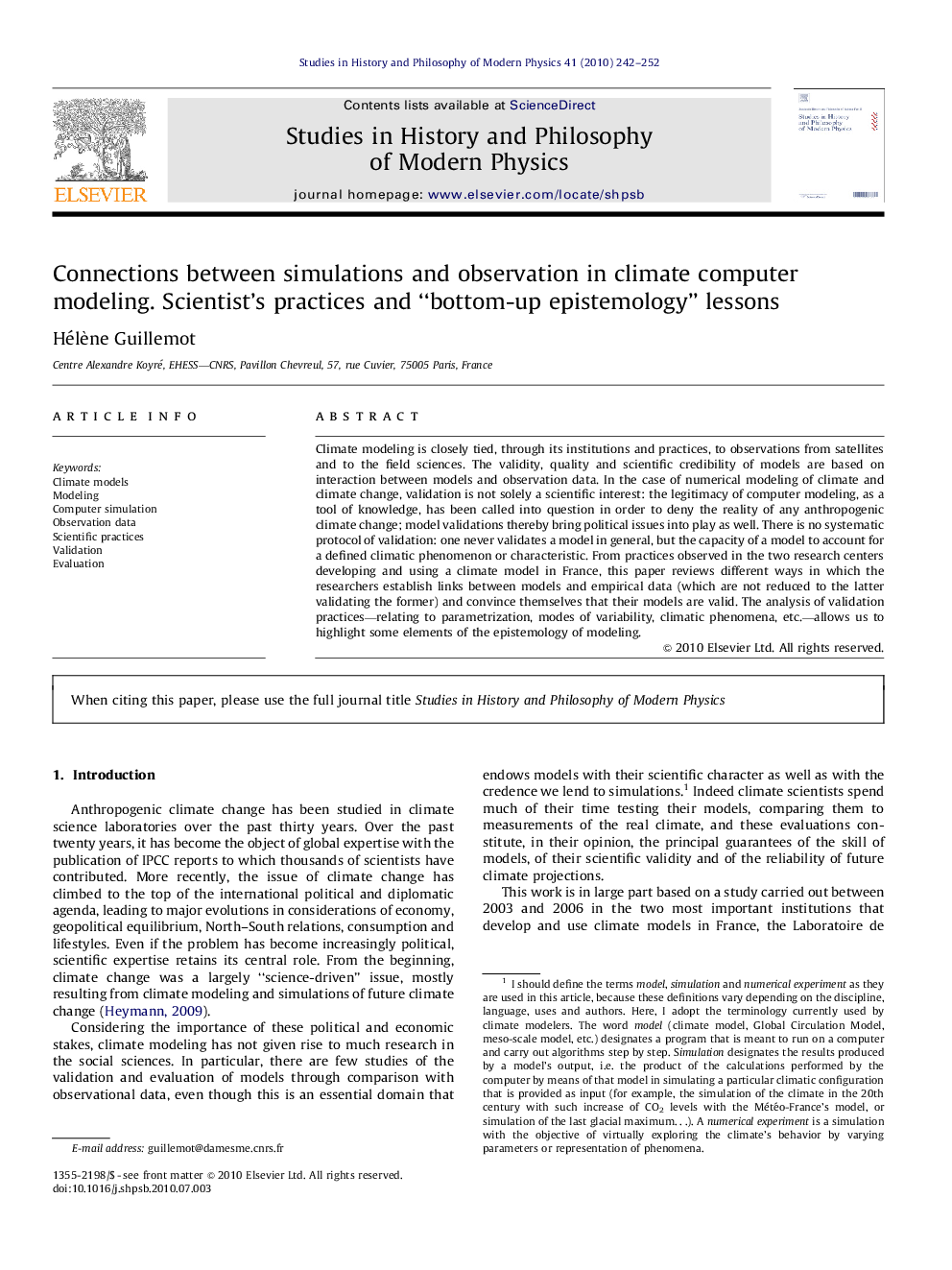| Article ID | Journal | Published Year | Pages | File Type |
|---|---|---|---|---|
| 1161634 | Studies in History and Philosophy of Science Part B: Studies in History and Philosophy of Modern Physics | 2010 | 11 Pages |
Climate modeling is closely tied, through its institutions and practices, to observations from satellites and to the field sciences. The validity, quality and scientific credibility of models are based on interaction between models and observation data. In the case of numerical modeling of climate and climate change, validation is not solely a scientific interest: the legitimacy of computer modeling, as a tool of knowledge, has been called into question in order to deny the reality of any anthropogenic climate change; model validations thereby bring political issues into play as well. There is no systematic protocol of validation: one never validates a model in general, but the capacity of a model to account for a defined climatic phenomenon or characteristic. From practices observed in the two research centers developing and using a climate model in France, this paper reviews different ways in which the researchers establish links between models and empirical data (which are not reduced to the latter validating the former) and convince themselves that their models are valid. The analysis of validation practices—relating to parametrization, modes of variability, climatic phenomena, etc.—allows us to highlight some elements of the epistemology of modeling.
